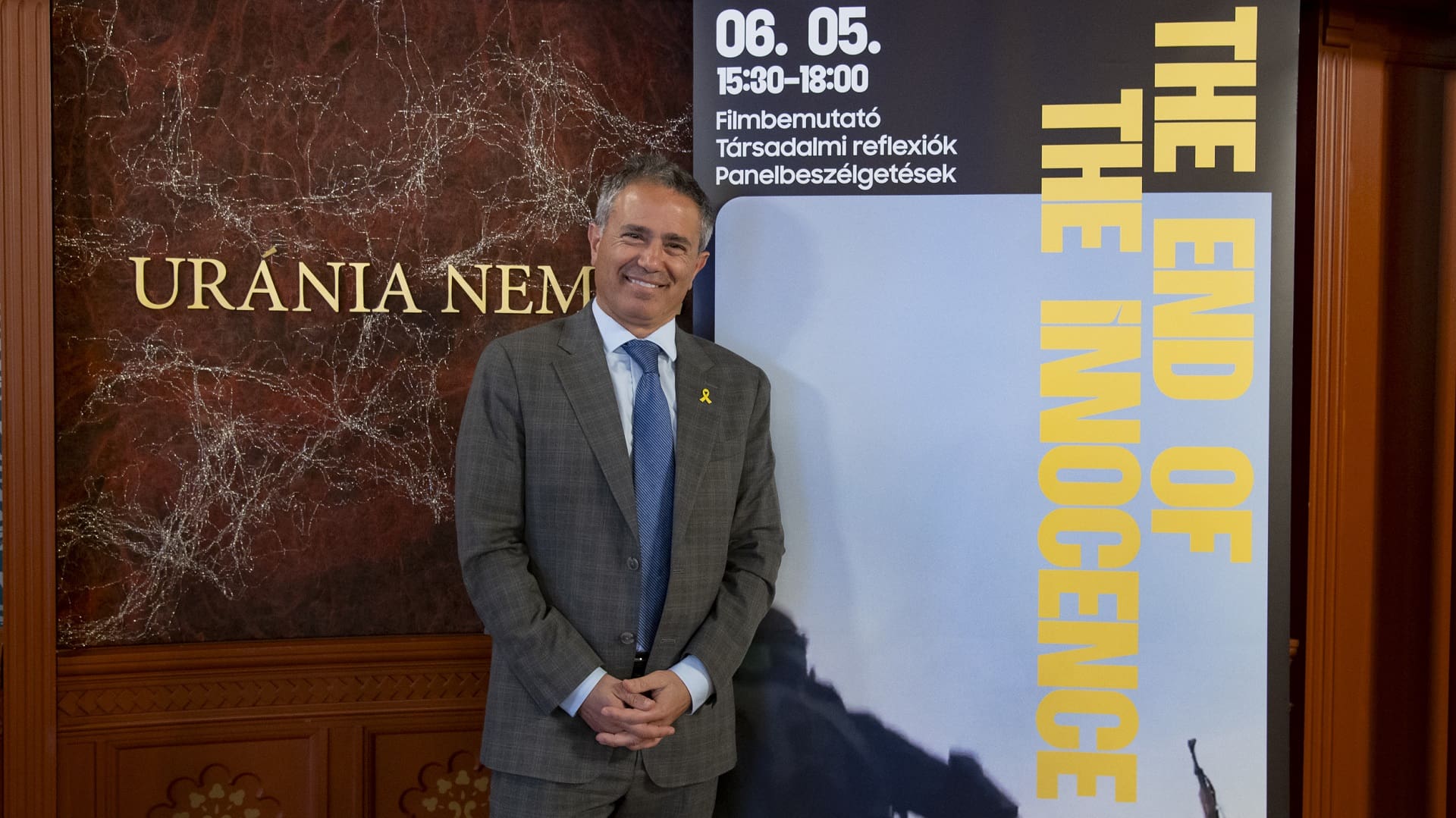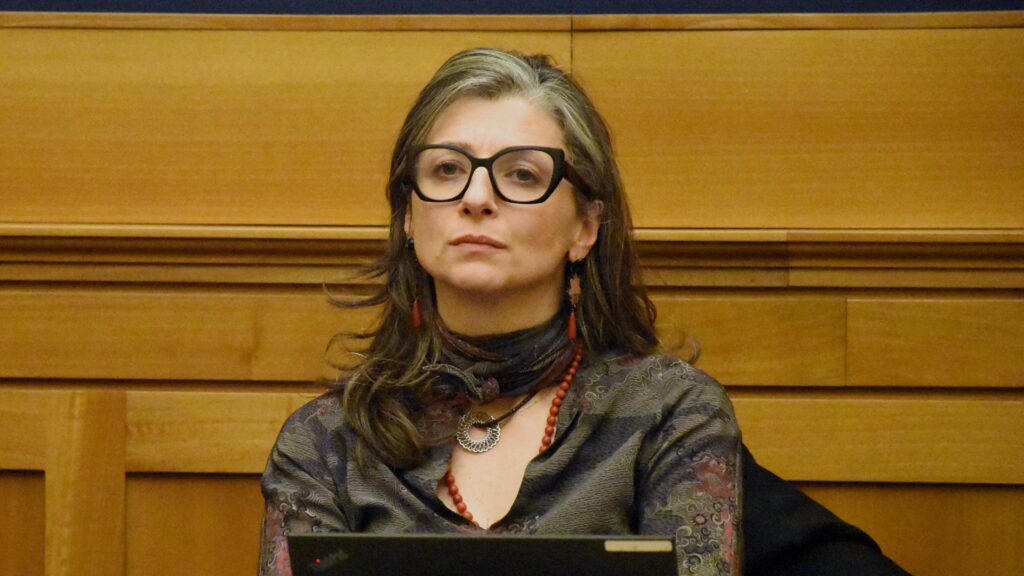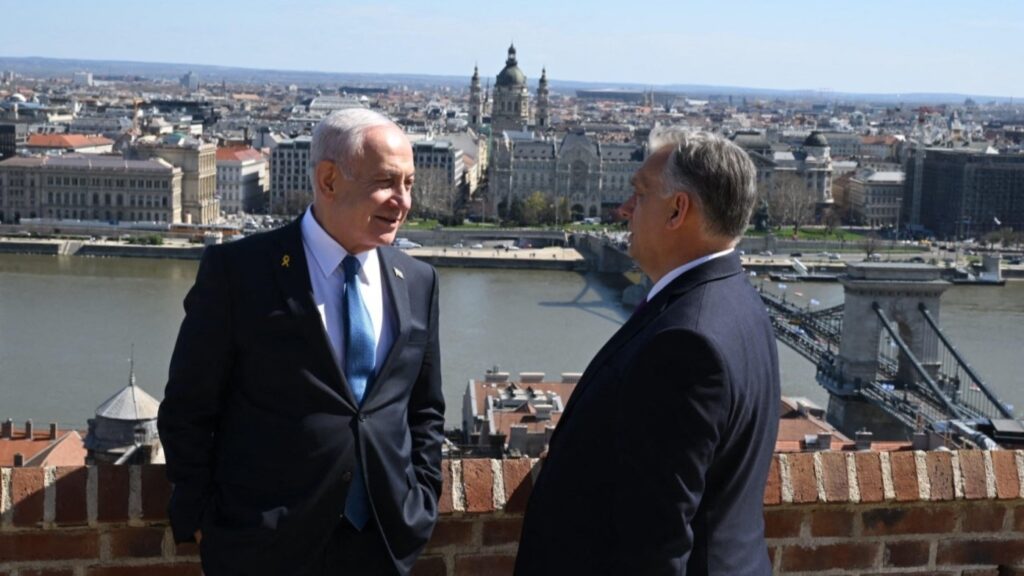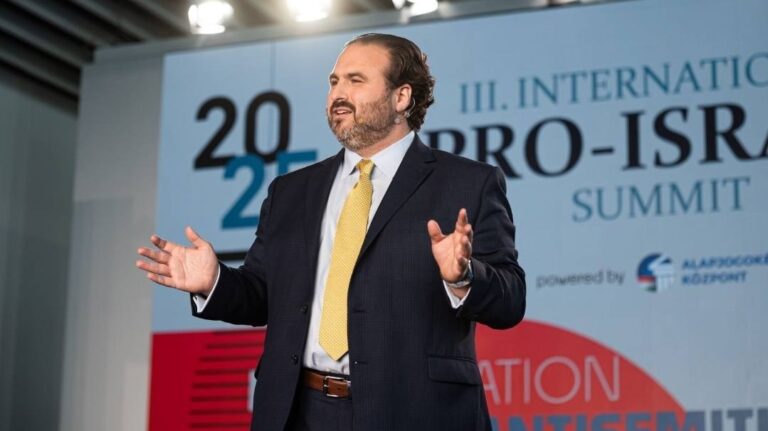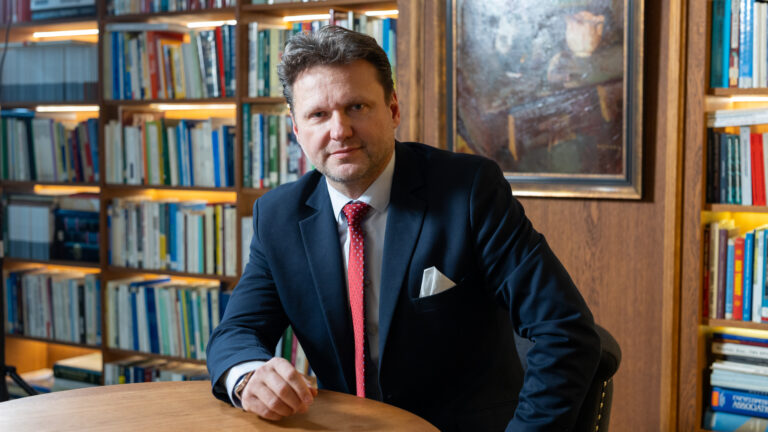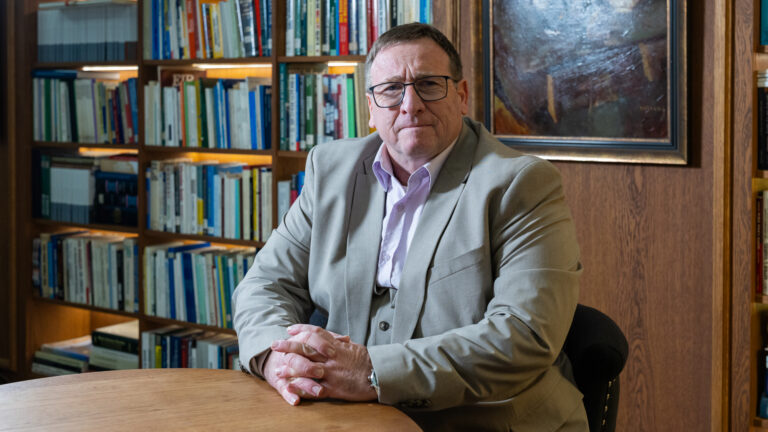The End of the Innocence, a short documentary about the Hamas attacks against Israel was screened at the Uránia National Film Theatre in Budapest, Hungary on 5 June. After the screening, the film’s director, Avi Benlolo of The Abraham Global Peace Initiative sat down with us for an exclusive interview to share his thoughts about the ongoing war, the new progressive antisemitism, and more.
***
How long after the initial shock of the attack did you decide that you wanted to make a short documentary about it? What was the process that led you to decide that you want to commemorate this in film form?
After the attack, the problem was that we saw that there were a bunch of denials. For example,
we saw the UN Secretary General saying that it didn’t happen in a vacuum.
We saw the denials of the rapes. So, I said to myself, look, first of all, we have to preserve witness testimony. Because if there is one thing we learnt from the Holocaust denial is that we have to ensure that there is enough testimony preserved.
So, a few weeks after the attack I decided I would go to Israel, collect evidence from witnesses, and also start combatting the denial. So, it only took a few weeks afterward.
About the title of your film, The End of the Innocence: in your speech, you mentioned that the time before the attack was a more innocent time. This is the retroactive perspective, do you agree? Did the pre-attack era feel like a time of innocence at the time?
A lot of people say we could have predicted it, or we did predict it. To a large extent, no one could have predicted the atrocity to be on such a scale, and so brutal. And so, when I say ‘the end of the innocence,’ it’s like we are all in shock. Israel is traumatized. So, you’ve got to look at it from that perspective. Everybody’s awoken now, and they are angry, very angry. And that really is what is meant by the end of the innocence. Because before then, even though we knew there was antisemitism, and even though we knew Hamas was a threat, no one understood its severity.
For example, nobody knew how armed Hamas is. We thought they had a little bit of weapons. Nobody knew how trained they are, how many tunnels exist. Nobody understood any of that. So, after 7 October, and during this war, we discovered just how serious Hamas is.
How bad are the subsequent campus protests in your home country of Canada compared to other Western countries? Is there anything specific to the Canadian education system that you saw? Are the protests more severe, less severe?
Actually, Canada has a larger problem because of our laws when it comes to removing the encampments. Our system, our legal system and our university system are much more lax than, let’s say, the American system is. Even though in Canada, the encampments were copycats.
You know, you look at the University of Toronto, as an example, the university has already asked the students to vacate the encampments. Now, it’s leaning onto the court system, seeking an injunction to remove the camps. But that still hasn’t happened, so the police still hasn’t moved in and cleared out the encampments. Whereas you look at Texas, for example, after 24 hours, the Governor said ‘You guys are all out of here,’ and went in and completely removed them.
So, two very different systems. In Canada, it’s a bigger threat than in the US. In the US, they are just much more vocal about it.
What do you make of this new type of progressive antisemitism? Because in this woke theory, usually historical oppression has the minority group viewed as a victim now. And the Jewish people have suffered more oppression, more torture, more violence than any other group in recent history. How did this whole shift come about when suddenly, in the woke ideology, they are now seen as the oppressors? How come nobody in the woke left brings up the Holocaust to paint the Jewish people as the victims?
Wokeism basically turned the world upside down, turned morality and the moral compass upside down.
What we used to think is right is now wrong. And that is the core problem with wokeism, they are trying to destroy and disrupt accepted norms. Some of them, by the way, if you are looking at advancing women’s rights, advancing black rights, there, they really have reasons.
The problem is, that now they’ve grouped the Jews and Israel specifically as colonists, forgetting about the fact that Jews are really indigenous to the land of Israel. They call them settlers and colonists, they refer to what’s happening in Gaza as genocide. So, what they are trying to do is completely change the language to fit within their perception. And that, unfortunately, has turned the language upside down. You see gay activists wearing keffiyehs, it doesn’t make sense. If a gay activist who is trying to stand up for Palestinian rights is advocating for Hamas, they wouldn’t be permitted under their own value system in Gaza, they wouldn’t be able to be gay person in Gaza. So they’ve completely convoluted things, not really understanding the reality of the situation, not understanding how it actually impacts them and their own lives. And that’s the confusion that wokeism has caused, I think.
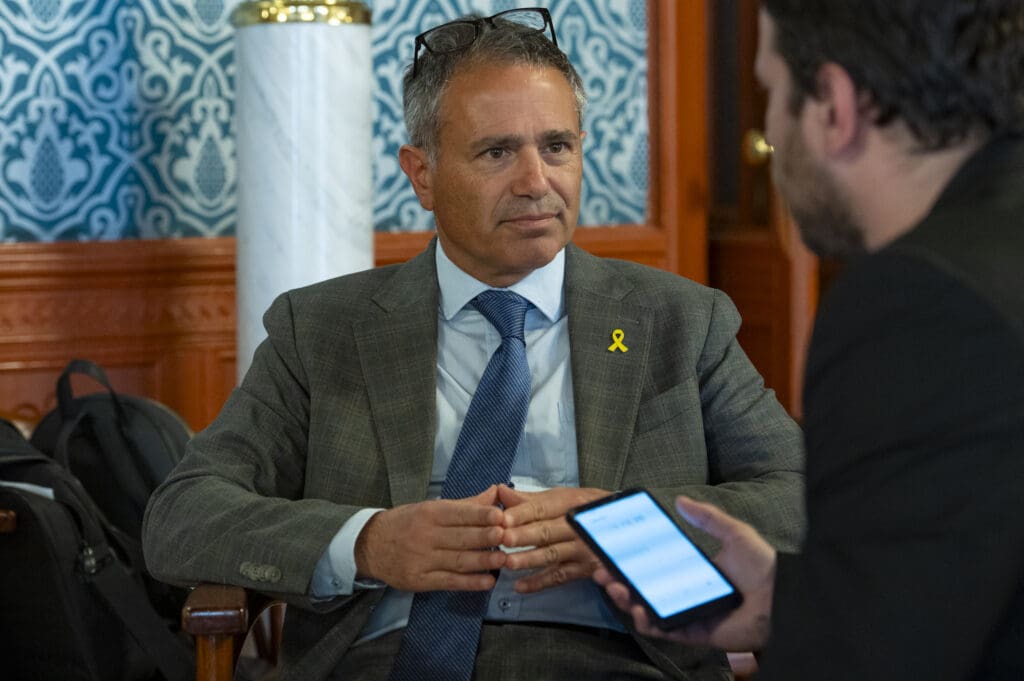
In my experience, internal logic and consistency are not paramount for them. It’s more of a dogmatic, and more of a trend, a peer pressure thing. Usually, if the majority of progressives pick a side, consistency is not a major hold-up, they can just engage in ‘doublethink,’ as George Orwell would say.
Yeah, they are also sometimes operating—and it’s not just them, it’s human nature—like sheep, meaning they go with the herd. It’s basically a herd mentality. So, if this is now the trend of the day, this is what we should do, instead of having real critical thought, instead of researching ‘Who’s Hamas? What am I standing up for? What does their charter say? Would I really agree with that?’. They are not asking these critical questions that an intellectual should be asking. Instead, there’s a herd mentality that’s like ‘Oh, today my group is saying that today we need to advocate against Israel’. It’s a very dangerous precedent. And you see this kind of trend in other radical ideologies, whether it is Islamism, whether it’s Nazism, this herd mentality that goes along with a destructive ideology. Maybe decades later, they’ll say ‘Wow, I actually did that? That didn’t make sense’.
What about the role of Hungary in this global conflict? It’s really an outstanding supporter of Israel, the Hungarian government. Is the global Jewish diaspora aware of it, do they appreciate it? And do you think it has any practical impact to have an EU Member State on your side?
Hungary has been a very strong supporter of Israel. I can tell you that the diaspora, the Jewish world in Canada, and in America, they recognize that.
We carefully watch the results of UN votes, and we always see Hungary there, supporting Israel, and we recognize that, and we acknowledge that. So it’s absolutely something we are aware of.
Hungary was a country that fought on the Axis side in World War II. And now, it has really come around.
Look, because of Hungary’s past, with the Holocaust, it’s always been difficult for Jews to accept and understand it. But that’s partly the reason why I’m here. Because I’m a voice, and that helps the diaspora community understand that Hungary has changed. We hope that change will continue, that the country will continue to be a strong voice for Israel and for truth.
One last thing. I’ve looked through your bio on your website, and it says that your proudest achievement is establishing The Avi Benlolo Scholarship Fund in National Security Studies. Does this still hold true? Can you talk about this fund?
There’s a scholarship named after me at Haifa University for security studies. Obviously, as a supporter of Israel, and someone who supports the IDF in terms of defending Israel, I still very much strongly support the fund and want to enhance the security of Israel. So, for me, it made total sense to do that.
Related articles:

